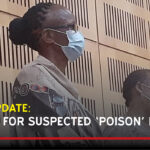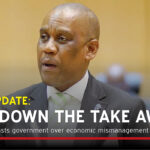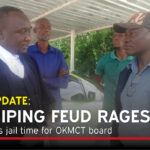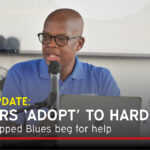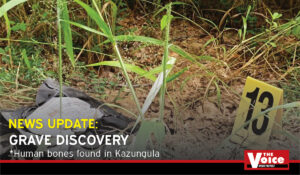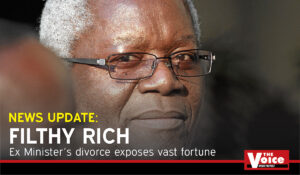The Ministry of Health (MoH) is keeping a brave face amidst the challenges posed by the suspension of foreign aid by the United States of America.
The USA under the new President Donald Trump announced a 90-day suspension of aid with immediate effect on 28th January, sending panic across countries heavily dependent on US funding for health and economic initiatives.
Botswana has for many decades been a beneficiary of the US foreign aid in the health sector which funded direct service delivery and technical support.
According to MoH, since the introduction of the President’s Emergency Plan for AIDS Relief (PEPFAR) in 2003 the health sector has cumulatively benefited support amounting to more than P1 billion.
In a response on behalf of the Permanent Secretary to a questionnaire from The Voice, the Ministry’s Spokesperson Dr. Christopher Nyanga, acknowledged the significant impact of US support, particularly in Botswana’s response to the HIV/AIDS scourge.
“There is no doubt that without the US support, Botswana may not have been one of the first countries to reach and exceed the ambitious UNAIDS 95-95-95 targets.
The UNAIDS 95-95-95 declarations called on member states to ensure that 95% of people living with HIV know their HIV status, 95% of people who know their status are receiving HIV treatment, and 95% of people on treatment are virally suppressed.
In October 2022, the Botswana government announced that the fifth Botswana AIDS Impact Survey (BAIS V) showed that the country has exceeded UNAIDS 95-95-95 targets.
The results showed that among adults (those 15-64 years) in Botswana living with HIV, 95.1 percent were aware of their status, 98 percent of those familiar with their status were on ART, and 97.9 percent of those on ART achieved viral load suppression.
There is fear that the suspension of the US foreign aid could reverse the gains made over the years.
“We’ll keep an eye on the situation and do anything we can to ensure that any essential services that were performed by these US supported organizations continue, despite the decision,” responded Nyanga.
Nyanga further said that if the decision is made permanent, Botswana will have to work extra hard to sustain most of the gains made through the support of the US Government and people.
He said as the situation continues to unfold, the Ministry of Health will explore all possible options that can be adopted for continued service delivery to all people who have been receiving health services from organizations supported by the US.
“Other options include integrating such services to the mainstream public health system,” Nyanga said.
On potential loss of jobs to more than 1000 people employed in US supported organizations delivering health services in the country, Nyanga said they could not state how many people may be affected.
“Pending more information and developments on whether this will be a permanent decision, we are currently unable to anticipate with certainty how many jobs will be lost,” he said.





